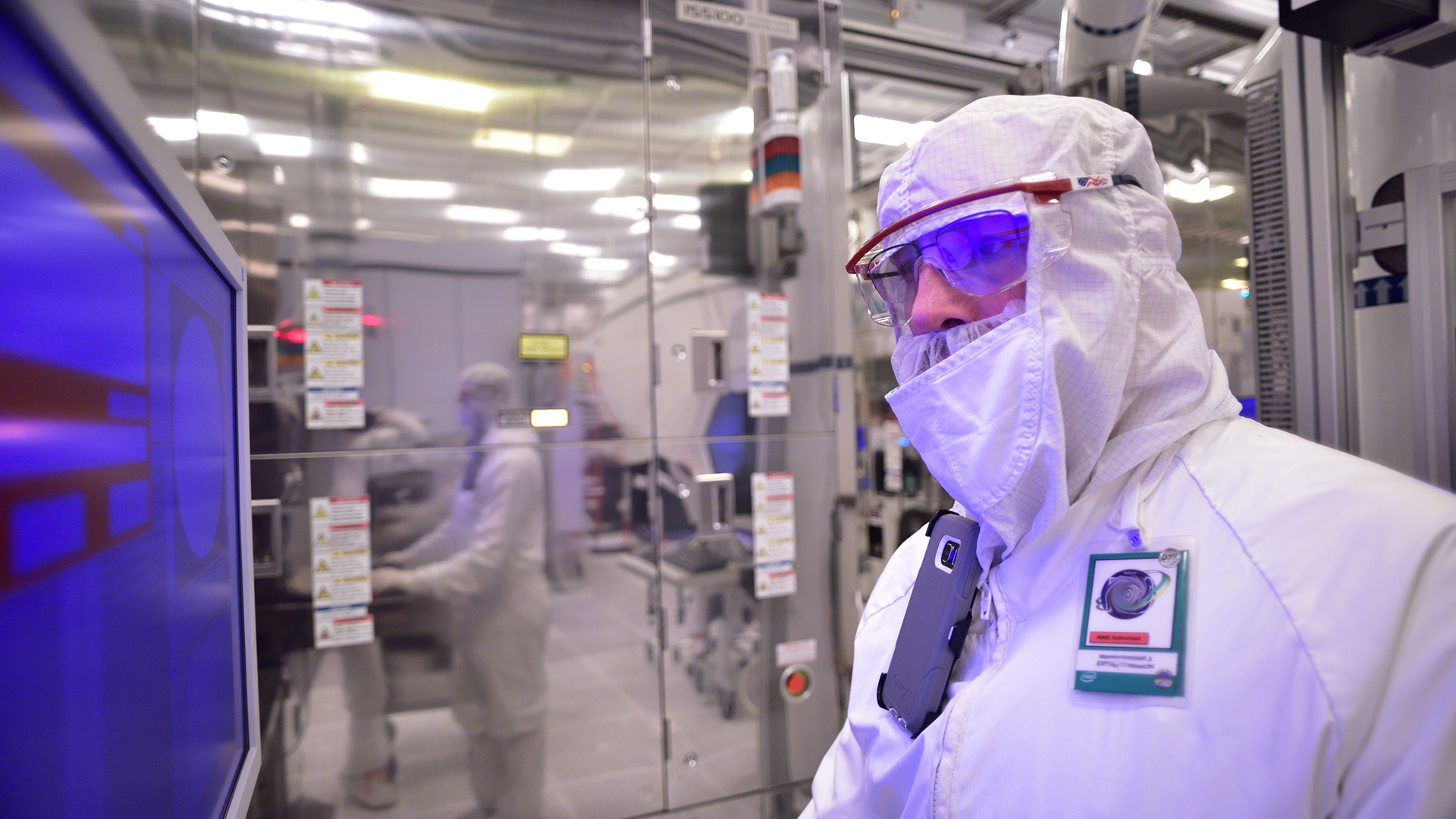Intel to begin shifting CPU production to TSMC later this year
Core i3s on TSMC 5nm this year, i5 and more on TSMC 3nm in 2022

Keep up to date with the most important stories and the best deals, as picked by the PC Gamer team.
You are now subscribed
Your newsletter sign-up was successful
Want to add more newsletters?

Every Friday
GamesRadar+
Your weekly update on everything you could ever want to know about the games you already love, games we know you're going to love in the near future, and tales from the communities that surround them.

Every Thursday
GTA 6 O'clock
Our special GTA 6 newsletter, with breaking news, insider info, and rumor analysis from the award-winning GTA 6 O'clock experts.

Every Friday
Knowledge
From the creators of Edge: A weekly videogame industry newsletter with analysis from expert writers, guidance from professionals, and insight into what's on the horizon.

Every Thursday
The Setup
Hardware nerds unite, sign up to our free tech newsletter for a weekly digest of the hottest new tech, the latest gadgets on the test bench, and much more.

Every Wednesday
Switch 2 Spotlight
Sign up to our new Switch 2 newsletter, where we bring you the latest talking points on Nintendo's new console each week, bring you up to date on the news, and recommend what games to play.

Every Saturday
The Watchlist
Subscribe for a weekly digest of the movie and TV news that matters, direct to your inbox. From first-look trailers, interviews, reviews and explainers, we've got you covered.

Once a month
SFX
Get sneak previews, exclusive competitions and details of special events each month!
Intel will begin shifting its production of consumer CPUs to TSMC later this year. So says market intelligence outfit, TrendForce.
TrendForce's sources say that Intel will first outsource Core i3 CPUs to TSMC in the second half of this year using TSMC's 5nm process, as used by Apple in its latest iPhone and MacBook chips. Next year, Intel will then move its higher performance models to TSMC's upcoming 3nm node.
We've previously discussed the possibility that Intel will begin to outsource CPU production due to its ongoing problems with its new 10nm production node and also with the 7nm node intended to succeed it. But it's the first we've heard of plans for specific processors and detailed time frames.

Best CPU for gaming: the top chips from Intel and AMD
Best graphics card: your perfect pixel-pusher awaits
Best SSD for gaming: get into the game ahead of the rest
If the report is true, the immediate question is what chips, exactly, will move to TSMC 5nm later this year? Intel has always said its radical new Alder Lake hybrid CPUs will be built in-house on 10nm tech. That was confirmed on Monday with a demo of Alder Lake running on what Intel characterised as an 'enhanced superfin 10nm process.
With Alder Lake due out later this year, the question is whether Intel is splitting Alder Lake between TSMC and its own fabs or whether the mooted i3 processors will be based on a previous architecture.
We'd bet on the latter, perhaps with something along the lines of a quad-core Cove-based CPU with internals similar to Tiger Lake or Rocket Lake being sent to TSMC. Then in late 2022, Intel could respin Meteor Lake, the successor to Alder Lake, for TSMC 3nm.
Anyway, all of this is very much TBC. But it aligns with everything we know about Intel's current woes and increasing indications that it will have to outsource at least some CPU production to stay competitive with an increasingly on-form AMD.
Keep up to date with the most important stories and the best deals, as picked by the PC Gamer team.

Jeremy has been writing about technology and PCs since the 90nm Netburst era (Google it!) and enjoys nothing more than a serious dissertation on the finer points of monitor input lag and overshoot followed by a forensic examination of advanced lithography. Or maybe he just likes machines that go “ping!” He also has a thing for tennis and cars.

